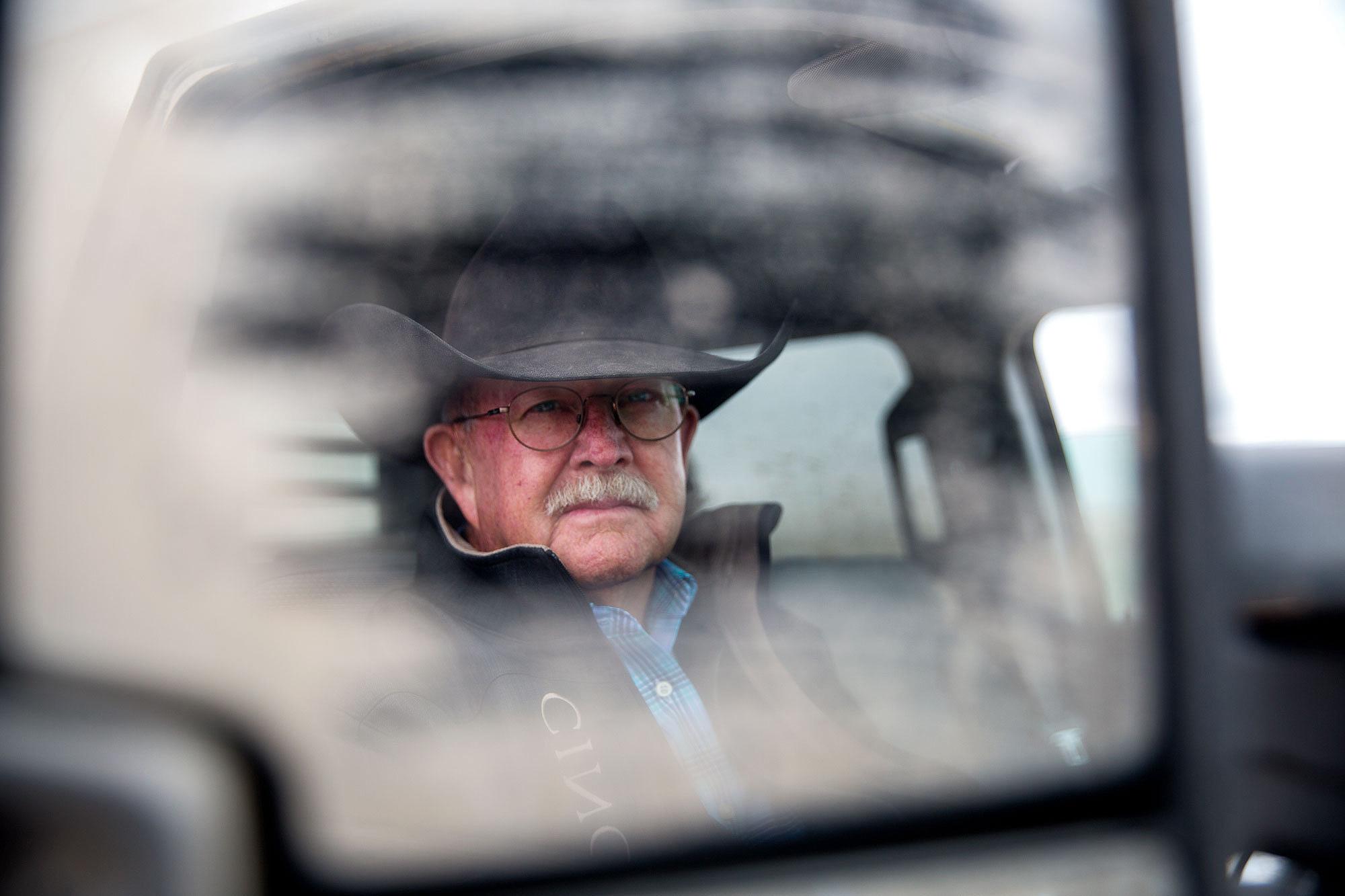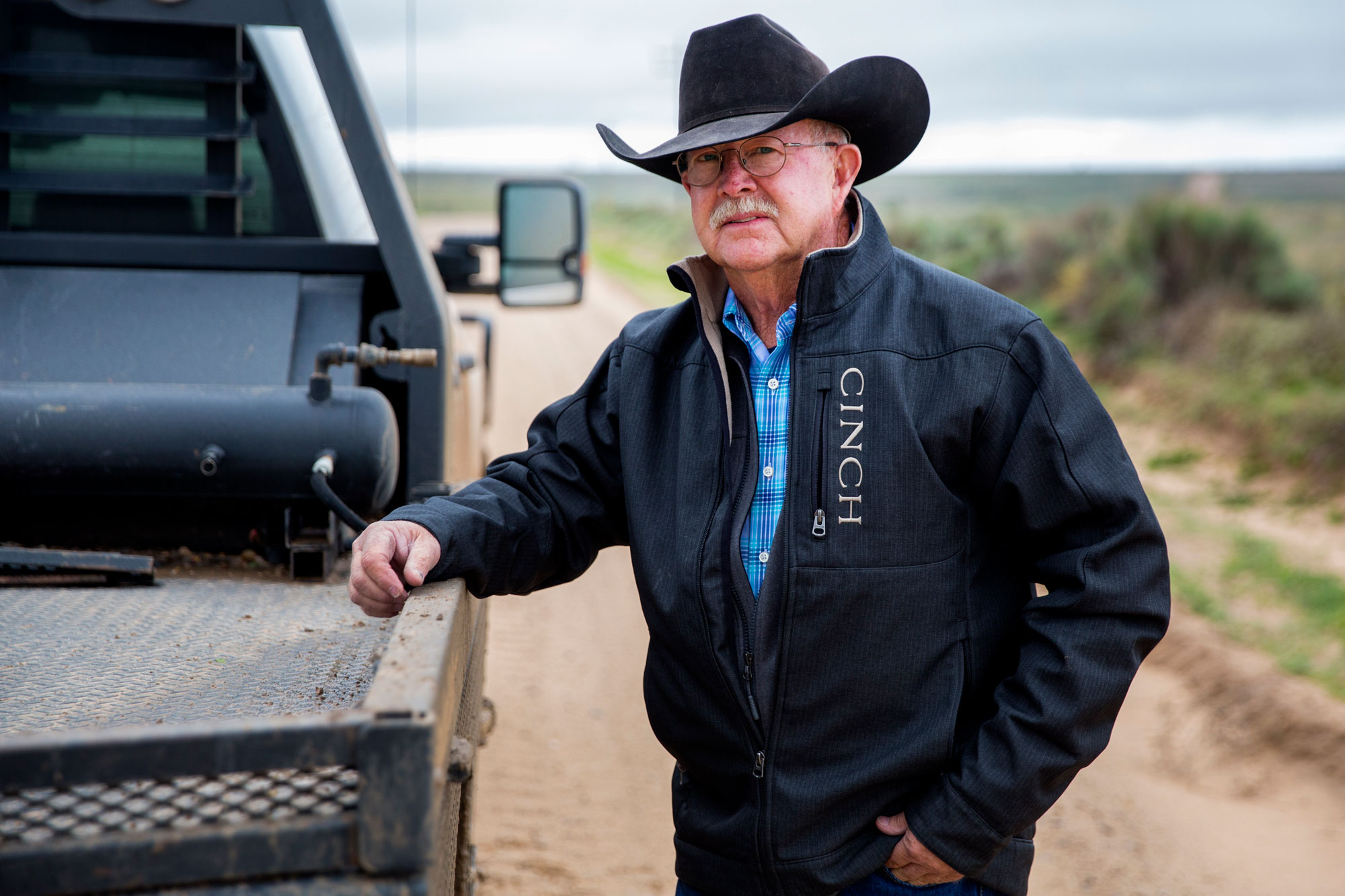

The dirt roads near the tiny southeastern Colorado town of Walsh have been extra sloppy lately because of an abundance of spring rainfall. The Arkansas River drainage, which feeds the surrounding farmland, is more than 200 percent of average right now.
These are good signs for Terry Swanson, who raises dryland crops and cattle on his 20,000 acres in this normally dusty corner of the state.
Yet, that positive outlook is tempered by the escalating trade dispute between the United States and China. Earlier in May, President Donald Trump announced he would raise existing tariffs on about $250 billion of Chinese goods from 10 percent to 25 percent after talks with China to resolve the administration’s grievances fell through. China, in turn, retaliated with plans to impose tariffs on $60 billion worth of American products.
Swanson and farmers around the country have felt the pinch of the tariffs, as the Chinese market has become an increasingly important export market for American agriculture. Take sorghum for example — which Swanson grows — that crop has become valuable for Chinese pork and poultry producers as feed.

“Last year, almost 90 percent of the (U.S.) sorghum crop went to China,” Swanson said. “This year, zero percent of the sorghum crop went to China.”
Colorado farmers grew $53 million worth of sorghum in 2018.
Swanson said his cattle and other crops, including corn and wheat, have also been affected. He said he’s not sure the U.S.-China trade dispute is entirely responsible for the dramatic drop in crop exports, but it’s not helping.
Swanson voted for Trump in the 2016 election, feeling, like a lot of rural America, that national politics had increasingly favored what he described as “coastal elites.” He said he believes in the president’s ultimate goal — to crack down on what most economists describe as unfair Chinese trade practices, such as intellectual property theft.
“This is not the first administration that’s challenged us to wait and have confidence in them,” Swanson said.

He approves of a lot of what Trump has done for American agriculture, from easing regulations to the appointment of Agriculture Secretary Sonny Purdue, whom Swanson described as “a breath of fresh air for farmers.” Swanson even met the president during a White House ceremony that recognized Purdue’s appointment in April 2017.
He said he believes ag country will continue to stick with the president through this Chinese trade dispute, at least in the short term.
“Most farmers are over 50 and have been there for a while. They’re patient but at the same time … you’re only as patient as your checkbook is thick,” he said.
However, as he drove the muddy roads next to his rain-drenched crops, he remained confident. China has so many people, he said, who all need to be fed.
“They will buy,” Swanson said about the Chinese. “It may not be this year, but they will buy. They’ll come to the table.”
Read More: Collateral Damage Of The Trade War, Farmers Want Chinese Market Reopened









